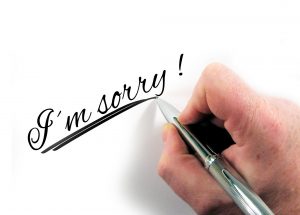 Most of us know the importance of forgiveness, but how well do we do when it comes to forgiving ourselves? As important as forgiving others is, it is also true that self-forgiveness needs to be a part of forgiveness. So why do we struggle so much in this area?
Most of us know the importance of forgiveness, but how well do we do when it comes to forgiving ourselves? As important as forgiving others is, it is also true that self-forgiveness needs to be a part of forgiveness. So why do we struggle so much in this area?
From a spiritual perspective, once we repent, God holds no records of right and wrong. This is often a difficult concept to embrace. Because of guilt and harm we may have done to others, it is hard to believe that the slate could be wiped clean. But let’s consider the stories of Paul and King David from the Bible.
Both men sinned in ways that were extremely hurtful to others and caused harm and even death. Paul murdered Christians in the name of religion and yet wrote much of the New Testament. King David committed both adultery and murder and yet was described as a man after God’s own heart. Both of these men refused to allow their pasts to define their futures. If they had, feelings of unworthiness, inadequacy or even guilt would have preempted them from doing all God had for them to do.
Have you ever thought about that? Not forgiving yourself can keep you from doing the things God has called you to do. Instead, we can be grateful for forgiveness, live in forgiveness and have God’s view–it’s done, gone and even forgotten. Then, we can move forward with the things he has for us to accomplish.
Nothing stops God from forgiving you. Your sin can be horrific, but if there is true repentance, God still forgives. So receive His forgiveness and move forward in your life. Don’t allow accusing thoughts to populate your mind. Don’t rehearse your failures and mistakes and keep them front and center in some skewed view of humility. Instead, receive forgiveness and move on. If not, you can’t live in joy and freedom as you will always be focused on the wrong doing. Then, as Jesus admonished, go and sin no more.


